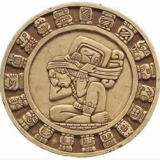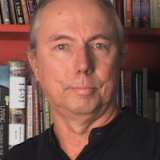Empathy: And the Nature of Compassion
By Linda-Ann Stewart Ct.H., Ct.H.A
When there is a wrong committed, people rally around the victims. A woman is raped, a wife is beaten, a man is mugged, a husband is murdered. Friends and strangers lavish their compassion and love on the survivor. Wishing to support those that are wounded, emotionally or physically, they extend their empathy, and do what they can to ease the pain.
If there is a victim, society says there also must be a victimizer. Seeing things in black and white, our human nature tends to judge the wrongdoer. A desire for retribution arises, wanting to see the evildoer hurt as badly as his victim hurts. Wanting to lash out and take “an eye for an eye,” many people want to see the rapist, wife-beater, mugger, or murderer receive the same treatment they have inflicted.
It’s well known that any violent predator was once severely injured by a situation in his/her past. As a child, a rapist may have been molested and the mugger pummeled. A wife-beater probably watched his mother being abused. In his youth, a murderer may have had violence swirl around him. The past twisted them, numbed their emotions, leaving only pain, anger and disempowerment.
Wishing to strike out, to reduce some of their own agony, they wound others. And since that solution is only temporary, but it does briefly blunt some of the anguish, they continue to act out of their pain. They deserve compassion as much as their victims.
Many spiritual people empathize with the disenfranchised, the offender, so much that they pardon the victimizer, no matter what they’ve done. But deserving compassion doesn’t mean that the abuser’s actions should be condoned or excused. They had the choice of what actions to take. If they choose to aim their anger at another, they must be held accountable for their decision. Trying to protect them from the consequences of their actions doesn’t allow them to learn the lesson of the experience.
The Universe has laws of “cause and effect.” Set an action in motion, and it will return in a similar fashion. It’s been called “reaping and sowing.” If I have a business partner who defrauds me without remorse, I don’t have to hate them or respond in kind. But I do need to end the partnership. That is the consequence of their action. If I remain in the partnership, even though I might object strenuously to their behavior, I’m giving them tacit acceptance of their conduct and attracting more of it into my life.
Protecting someone from the fallout of their actions means that we’d be interfering with their learning experience. They’ve set up the occurrence, and the Universe will ensure that they will learn the lesson from it one way or another. We may have compassion for mass murderers, like Ted Bundy and John Gacy, for the turmoil in their souls that compelled them to kill others. But that doesn’t mean that we want them wandering the streets and endangering more people. Incarcerating them keeps them from adding to their own karmic burden. It isn’t retribution or revenge to put them away. It’s to protect society from the murderers and the murderers from their own impulses that would escalate their eventual experience of the Universal consequences.
Having compassion for a person’s pain means that we also may have compassion for the consequences of their actions. But if we get in the way of their taking the results of their behavior, we’re actually interfering with the action of the Universe. We can’t protect another from him or herself. They have chosen this lesson. No matter how hard it is or how painful, we have to stand back and let them learn it. If they don’t learn their lesson now, then they’ll have to repeat it until they do. This hurts them, and their future victims, needlessly.
Linda-Ann Stewart is a nationally known hypnotherapist, writer, speaker and leads seminars on empowerment and stress reduction. You can visit her web site at www.cedarfire.com.
Copyright © 1999-2005 Linda Ann Stewart. All Rights Reserved






